What Gives? Weight Management and Running
Did you start running to get in better shape and lose a few pounds? Would it surprise you that increased mileage doesn't necessarily lead to weight loss? In fact, many runners training for a half marathon (13.1 miles) or full marathon (26.2 miles) actually gain weight!
How is weight gain possible when runners crush dozens of miles and thousands of calories per week during training for these longer distances?
As a health coach who works with runners, and from my own experience as a runner, I've identified the two most likely causes of this phenomenon.
1. Overcompensating by "rewarding" with food.
We know that weight management is a function of balancing the food we consume and the amount of energy we use, but many runners grossly over-estimate the number of calories we burn and underestimate calories we eat. Consider this example:
On Saturday, a 130-pound woman runs 10 miles, burning around 900 calories. She has a carb-rich 350 calorie-breakfast before the run, and during her run, she consumes 200 calories in the form of a carbohydrate gel and in sports drinks. After her run, she enjoys a recovery meal of a bagel with egg and cheese with her training pals, about 550 calories. Later she eats a nutritious lunch and dinner--lots of vegetables, lean protein and whole grains--and she also enjoys a few beers totaling 450 calories, plus a trip to the self-serve frozen yogurt shop, coming in around 500 calories (easy to do once you fill that cup with a few flavors, top it with cookie dough and brownie bites and add a couple chocolate covered pretzels). On her rest day, Sunday, our runner continues to celebrate Saturday's hard work with a pancake breakfast complete with greasy sides, easily topping 800 calories.
You can see how her 900-calorie deficit is quickly recovered (and then some). Our runner would need to cut back on treats and really ramp up the miles over the next few days to keep her weight stable or to lose weight if that's her goal.
2. Not eating enough before and after workouts, resulting in out-of-control “run-ger” later.
Our bodies draw on carbohydrates to fuel tough workouts like hills and sprints, as well as to help fuel long training runs, and we need carbs (along with protein) after those workouts to recover. But some of us have gotten the message that "Carbs are bad," and instead of nourishing our bodies after a run with a carb-rich snack, we skip it altogether or just focus on protein. I understand the rationale that runners try to apply here: "I just ran 10 [or 12 or 18 or 20] miles, and I don't want to blow the caloric deficit I've created."
But by skipping a meal or snack after the run, you leave your body under-nourished and unsatisfied, and you're likely to be hit with powerful cravings in the following hours or days. Runners who don’t fuel well before or after their runs often report a wild and uncontrollable hunger that I call “run-ger.” Run-ger comes on hard and fast; it can send the most virtuous eater to an emergency drive-through visit, or to empty a box of cereal or a jar of peanut butter at a sitting.
Of course, there can be other factors at play when otherwise healthy runners experience weight gain during training, but these issues are likely culprits. The good news is that both causes can be avoided: Plan your meals and snacks carefully, give your body what it needs when it needs it, and consume lots of wholesome foods--vegetables, fruit, raw seeds & nuts, legumes, lean protein and whole grains. And of course, if you need support in fine-tuning your diet to support your active life while achieving your weight loss goals, talk to a professional like me.
About The Author: Lauren Shafer
Lauren is a certified Health Coach who helps busy Baltimoreans articulate their health + wellness goals, and make measurable, sustainable diet and lifestyle changes for lasting transformation. Though she would never be described as athletic in her youth, Lauren started running as an adult, begrudgingly at first, until she discovered she actually enjoyed it. Now an 9-time marathoner and 3-time ultra-marathoner, you’ll frequently find Lauren running on roads and trails with her husband John and dog Osita.
To learn more about Lauren and check out her health coaching and blog, visit www.live-full.com or www.facebook.com/LiveFullBaltimore. Contact her at lauren@live-full.com.



